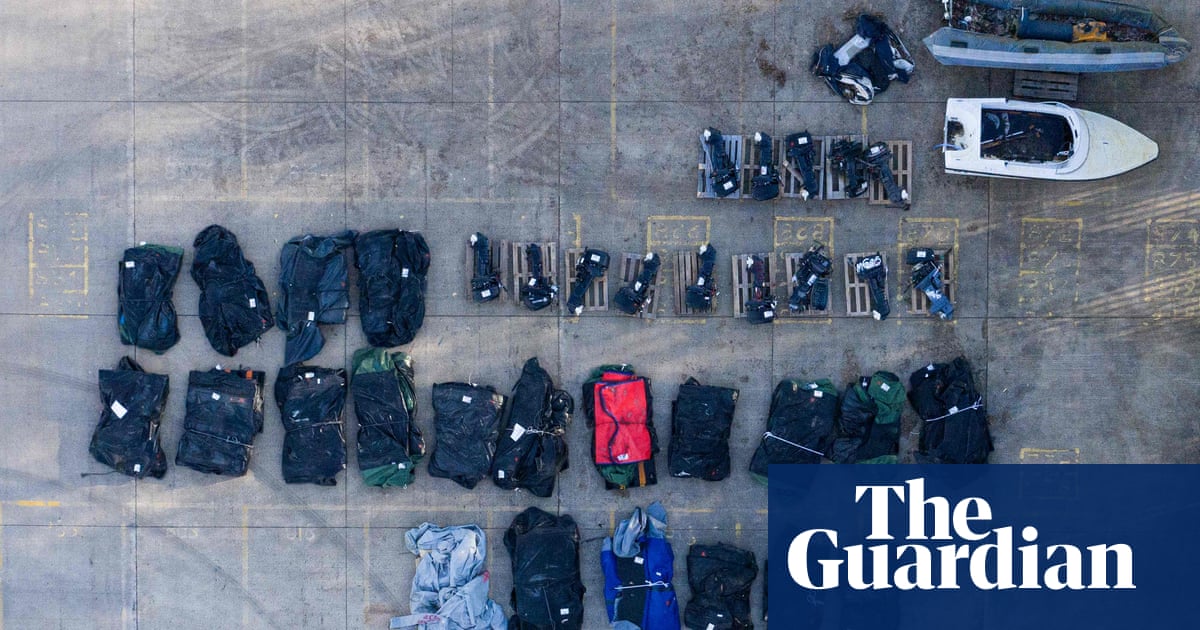
The number of small boat arrivals in the UK from northern France reached record levels in May with 568 migrants crossing the Channel in the last four days of the month.
In the first four months of 2021, the number crossing – 2,108 – was more than double the 896 who crossed in that period in 2020.
The rising numbers come as Home Office staff warn that working 20-hour shifts to process the new arrivals is not uncommon and that there are delays in Covid testing of small boat migrants.
Officials say there has been a shift in migration patterns across the Channel in recent weeks, with Vietnamese people-smugglers switching from lorries to small boats because they are proving to be a more successful way to reach the UK.
Contractor Mitie has been asked by the Home Office to assist with transporting new arrivals from the Tug Haven processing centre to short-term holding facilities such as the ones at Yarl’s Wood immigration removal centre in Bedfordshire.
“There are not enough staff, not enough space and not enough resources at Tug Haven,” said Lucy Moreton of ISU, the union for borders, immigration and customs staff.
She warned that the small boats processing centre was dependent on medical volunteers to carry out Covid tests and if only one volunteer was available, there could be delays in the testing of migrants.
“We are dependent on volunteer medical support,” said Moreton. “Staff face appallingly long hours most of the time. Shifts running up to 20 hours are not uncommon. We are deeply disturbed by that. It is not acceptable.”
A Home Office spokesperson said: “Covid testing at the Tug Haven is completed by contractors and not volunteers. We have never used volunteers. Every migrant arrival is tested for Covid prior to entering their accommodation, where they are placed in isolation for 10 days.”
The spokesperson added: “There are no instances or circumstances in which an officer would have taken a 20-hour shift and managers would have intervened to prevent this from happening and we have mitigation measures in place.”
She added that the situation was often changing. “A relatively new development in the last few weeks is for Vietnamese, not classically a nationality who seek asylum, using small boats rather than lorries.” Travelling by lorry takes an average of eight to 10 tries; travelling by small boat takes an average of one or two attempts.
Clare Moseley, the founder of Care4Calais, which supports asylum seekers in northern France and in the UK, said migrants in northern France were becoming increasingly desperate to cross the Channel to the UK because of the appalling conditions in Calais.
“The situation in Calais right now is unspeakable,” she said. “There continues to be a ban on distribution of food in some parts of the town and actions by the police against migrants are unrelenting.
“In many parts of Calais, areas of wasteland have been stripped bare of trees and scrub so that people cannot erect tents to sleep in. We are seeing people sleeping outside on bare tarmac, in disused petrol stations and behind derelict shops. It is entirely understandable that they would take great risks to escape. In these desperate cases, the lack of a safe, alternative pathway is making a dangerous trip in a unsuitable boat the only viable alternative.”
Ali, an asylum seeker from Iran who arrived in the UK from Calais a few weeks ago after spending a year there, said conditions had recently deteriorated in Calais. “I developed skin problems after being bitten by spiders and bugs. The French police were chasing us and we were running away,” he said.
“I have been referred to the national referral mechanism for potential victims of human trafficking since I reached the UK. But in Calais on the beach, the French police wrongly accused me of being a smuggler and confiscated my phone to check it. We are not smugglers. We are just asylum seekers. The smugglers treat us so badly. All they care about is money.”
A Home Office spokesperson said: “Criminal gangs are putting profits before people’s lives through these dangerous and unnecessary crossings. More than 3,500 people have been prevented from making the dangerous crossing so far this year and we are cracking down on the despicable criminal gangs behind people smuggling. Inaction is not an option whilst people are dying.
“The government is bringing legislation forward through our New Plan for Immigration which will break the business model of these heinous people smuggling networks and save lives.”












